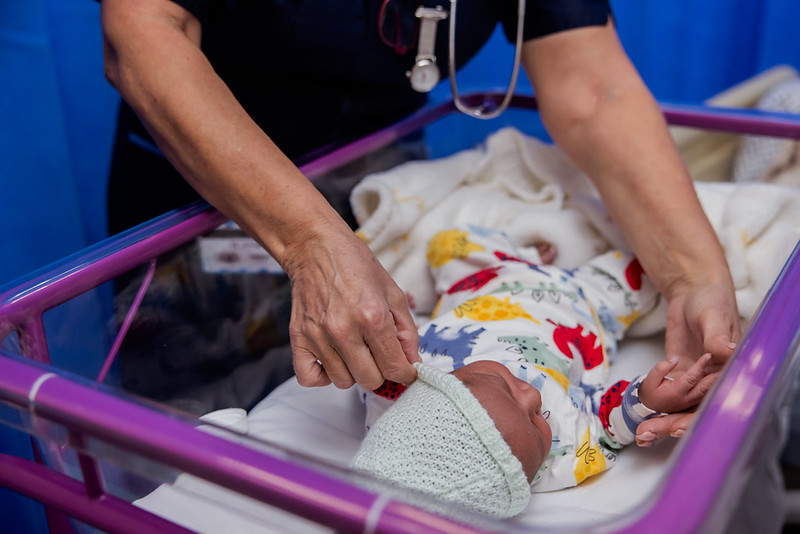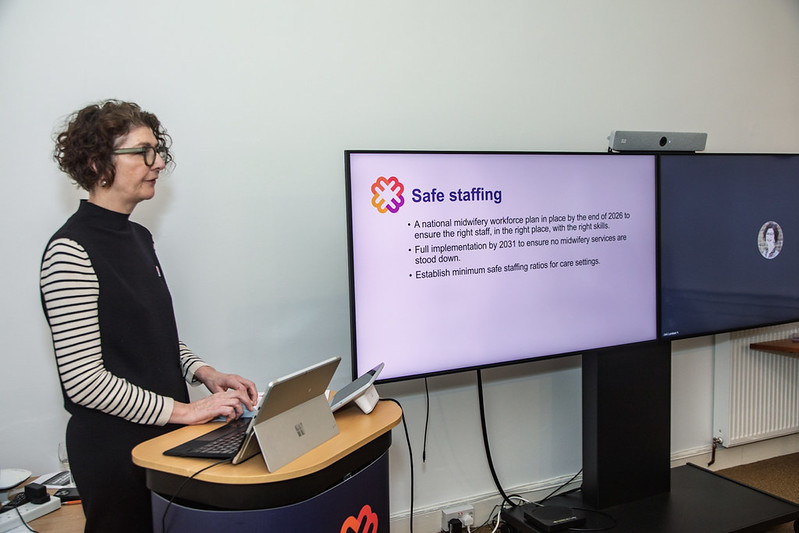The Royal College of Obstetricians and Gynaecologists (RCOG) and the Royal College of Midwives (RCM) are urging all pregnant women and people to have the flu and COVID-19 vaccines to offer themselves and their babies the best protection from the viruses.
This comes as the UK Health Security Agency (UKHSA) and NHS offer millions of people both the flu and COVID-19 vaccines this winter, including pregnant women.
Officials warn that there will be lower levels of natural immunity to flu this year as people were socialising far less over the last few winters due to the pandemic.
Developing flu can be very serious for a small number of pregnant women and their babies, and can leave women at greater risk of complications such as bronchitis – a chest infection that can develop into pneumonia. In rare cases flu infection in pregnancy can lead to stillbirth, maternal death and an increased risk of miscarriage.
Pregnant women have been prioritised for the autumn COVID-19 booster as they are at increased risk of severe COVID-19, and serious infection can put their babies at risk of being born prematurely.
Pregnant women and people are eligible for a free flu jab and the autumn COVID-19 booster vaccines this winter.
Dr Edward Morris, President of the Royal College of Obstetricians and Gynaecologists (RCOG), said:
“We are urging all those who are pregnant to accept the offer of the COVID-19 and flu vaccines as we approach winter.
“We are concerned that both COVID-19 and flu could be particularly rife this winter, with increasing levels of socialising indoors, less community testing and waning immunity.
“Pregnant women and people are more vulnerable to COVID-19 and the flu infection, and both viruses can individually cause severe illness in pregnancy. It is also possible to be infected with flu and COVID-19 at the same time, and this could make pregnant women seriously ill.
“Vaccination is the best way to protect both women and their babies from becoming severely ill with COVID-19 and the flu. We strongly urge all pregnant women to boost their immunity this winter and get vaccinated.”
Gill Walton, Chief Executive of the Royal College of Midwives (RCM), said:
“The COVID-19 pandemic and its effects are starting to fade from the public consciousness. However, the virus is still with us, it is still circulating, and catching it in pregnancy can have serious consequences for you and your baby. The flu virus also will be spreading more rapidly as we move into winter, and this too can seriously affect pregnant women and their babies.
“The COVID-19 and flu vaccines are safe for pregnant women and having them is the best protection against these potentially dangerous infections. I really encourage you to consider having the vaccines to protect yourself, your baby and your family. If you have any questions about either vaccine please speak to your midwife, obstetrician or GP so you can get all the facts and make the right decision for you.”
ENDS
For media enquiries please contact the RCOG press office on +44 (0)7740 175342 or email pressoffice@rcog.org.uk. To contact the RCM Media Office call 020 7312 3456, or email media@rcm.org.uk.
Notes to editors
- UKHSA release: Over 30 million people urged to take up ‘vital’ flu and COVID-19 vaccines
- Find out how to get a booster dose of the Covid-19 vaccine
- Those who are pregnant can book a free flu vaccine at their GP surgery, through their midwife, or a pharmacy that offers it on the NHS
Information for women and health professionals on COVID-19 can be read on the RCM website at Coronavirus Hub – RCM.
The Royal College of Midwives (RCM) is the only trade union and professional association dedicated to serving midwifery and the whole midwifery team. We provide workplace advice and support, professional and clinical guidance, and information, and learning opportunities with our broad range of events, conferences, and online resources. For more information visit the RCM | A professional organisation and trade union dedicated to serving the whole midwifery team.


